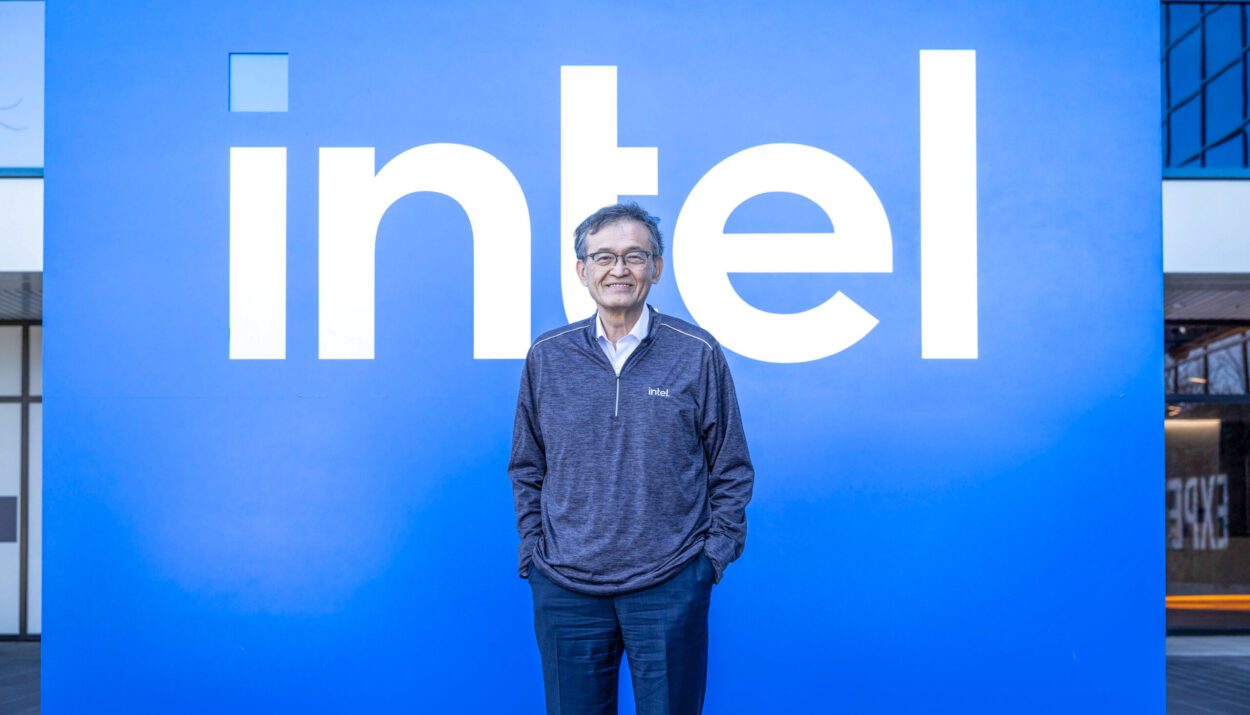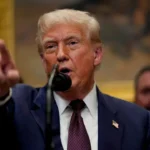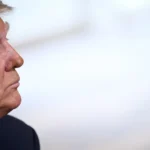In a political turn few saw coming, President Donald Trump has shifted from publicly demanding Intel CEO Lip-Bu Tan’s immediate resignation to calling him a remarkable success story — all within four days.
On Thursday, Trump accused Tan of being “highly CONFLICTED” due to past investments in Chinese companies and declared “there is no other solution” but for him to resign.
By Monday afternoon, after a White House meeting with Tan, Commerce Secretary Howard Lutnick, and Treasury Secretary Scott Bessent, Trump’s tone had flipped:
“The meeting was a very interesting one… His success and rise is an amazing story.”
Trump added that Tan and members of his cabinet would “spend time together” and bring him policy suggestions over the next week.
Market Reaction
Intel stock ($INTC) rose 3.5% during the day on early reports of the meeting and added another 2% after hours when Trump’s more positive remarks hit Truth Social.
The move puts Intel up nearly 4% for the year — still far behind chip rivals Nvidia (+36% YTD) and AMD (+47% YTD) — but marks one of its best single-day performances in 2025.
Who Is Lip-Bu Tan?
- Age: 65
- Citizenship: US citizen, born in Malaysia, raised in Singapore.
- Education: Master’s in nuclear engineering from MIT.
- Career Highlights:
- Founded Walden International, a venture capital firm investing heavily in Asia, particularly China and Taiwan. Over 30 years, Walden backed 600 companies across 12 countries, investing around $5 billion.
- Early investor and former board member at Semiconductor Manufacturing International Corp. (SMIC), China’s top chipmaker.
- Led Cadence Design Systems as CEO for 12 years (2009–2021), tripling revenue and making it a leader in chip design software.
- Intel Role: Appointed CEO in March 2025 to lead a turnaround after the board ousted Pat Gelsinger.
Why Trump Attacked Him
Tan’s past connections to Chinese firms — especially via Walden — drew scrutiny in Washington. Republican Senator Tom Cotton raised “concerns about the security and integrity of Intel’s operations,” citing his historic business ties in China.
Trump seized on those concerns last week, posting that the Intel boss was “highly CONFLICTED” and should “resign immediately.”
The pressure came just weeks after the US Justice Department announced Cadence (under Tan’s leadership years earlier) would plead guilty to illegally selling tech to a Chinese university linked to the military. Tan was not named in the case.
Intel’s Current Challenges
Under Tan, Intel is trying to:
- Cut 15% of its workforce to reduce costs.
- Focus on AI chips and reclaim lost ground in PC chips.
- Improve its lagging manufacturing technology, years behind Taiwan’s TSMC.
- Complete $8.5 billion worth of CHIPS Act-funded US factories in Arizona, Ohio, and New Mexico.
The stakes are high — Intel’s market share and relevance in the AI era depend on this turnaround.
Why This Meeting Matters
Trump’s reversal could signal a willingness to keep Intel close rather than risk destabilizing one of America’s few semiconductor giants. The friendlier tone may also reflect a political calculus: Intel’s US manufacturing projects align with his “America First” industrial strategy.
Still, this episode shows how quickly political pressure can land on tech leaders with global ties — and how suddenly that pressure can ease.
Market Takeaways
- Intel ($INTC): Shares rally on signs of a Trump–Tan détente.
- Nvidia & AMD: Rivals still dominating market performance in 2025.
- Policy Risk: Executives with China ties remain vulnerable to political heat.
- Turnaround Stakes: Tan’s ability to steady Intel could hinge on keeping the White House onside.
Disclosure: This article does not represent investment advice. The content and materials featured on this page are for educational purposes only.
Related:
Trump’s Tariff Revenue Hits Record Pace, But Can It Really Pay Down the Debt?
Trump’s Auto Tariffs Deliver $11.7 Billion Blow to Global Carmakers — No Relief in Sight
Inflation Data, Fed Policy Signals, and Key Earnings in Focus This Week
Trump Explodes Over Nancy Pelosi Stock Ban
Fed Governor Adriana Kugler Resigns, Opening Door for Trump
Trump Imposes New Global Tariff Rates, Effective August 7
What Happens After Tariff Deadline and What Next 72 Hours Look Like for Markets
Trump’s Tariffs Are Real, But Are His Trade Deals Just for Show?










